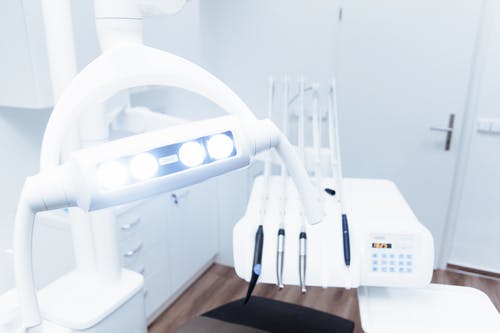
How to Finally Conquer Your Sleep Apnea: Expert Tips and Solutions
Sleep apnea is a severe condition that affects millions of people around the world, and untreated sleep apnea can have a significant impact on overall health. This article offers expert tips and solutions on conquering sleep apnea, improving your quality of life, and enhancing your overall well-being.
Understanding Sleep Apnea
Definition of Obstructive Sleep Apnea (OSA)
Obstructive Sleep Apnea (OSA) is a common sleep disorder characterized by repeated interruptions to breathing during sleep due to the complete or partial blockage of the airway. This blockage occurs when the muscles in the back of the throat fail to keep the airway open, despite the effort of the body to breathe.
Sleep Apnea Symptoms and Signs
Common signs of sleep apnea include:
- Loud snoring
- Gasping
- Choking during sleep
- Restless tossing and turning
Sleep apnea patients often experience daytime fatigue, trouble concentrating, irritability, and morning headaches. If you or someone you know is experiencing these symptoms, it is essential to seek professional help.
Long-term Consequences of Untreated Sleep Apnea
Living with untreated sleep apnea is a severe risk to your overall health. Some of the potential long-term consequences include high blood pressure, heart disease, Type 2 diabetes, depression, and an increased risk of vehicular accidents due to drowsy driving.
Assessing Your Sleep Apnea Severity
A sleep study, also known as a polysomnogram, is essential in diagnosing sleep apnea and determining its severity. Sleep apnea severity has three levels: mild, moderate, and severe. The severity is determined by the number of apneas (brief interruptions of breathing) and hypopneas (partial interruptions) that occur per hour of sleep.
Non-Surgical Treatments for Sleep Apnea
Continuous Positive Airway Pressure (CPAP) Machines
CPAP therapy is the most common and effective non-surgical treatment for sleep apnea. A CPAP machine delivers pressurized air through a mask to keep the airway open during sleep. This eliminates the breathing interruptions that characterize sleep apnea, allowing for a restful night’s sleep.
However, some individuals may experience difficulties adjusting to the mask or the pressure of the air, requiring further troubleshooting or alternative treatments.
Oral Appliances
Another non-surgical treatment option for sleep apnea is using oral appliances. These devices are custom-made by a dental professional, such as those at Pennington Dental Associates, and work by repositioning the lower jaw or tongue to prevent airway blockage during sleep. Oral appliances are often recommended for mild to moderate sleep apnea and may be more comfortable and easier to use than CPAP machines.
Lifestyle Changes for Sleep Apnea
Making appropriate lifestyle changes can significantly improve sleep apnea symptoms. These changes may include losing weight, exercising regularly, sleeping on your side instead of your back, avoiding alcohol and sedatives, and quitting smoking. Making these changes can not only alleviate the symptoms of sleep apnea but also improve overall health and well-being.
Surgical Interventions for Sleep Apnea
Sometimes, non-surgical treatments may not be enough to treat sleep apnea effectively. Surgical intervention may be necessary, such as a septoplasty, tonsillectomy, or uvulopalatopharyngoplasty. It is crucial to consult with a sleep specialist or ENT (ear, nose, and throat) doctor to determine which surgical option is best suited for your specific situation.
If you are struggling with sleep apnea, exploring all available treatment options is essential. Working with a qualified professional can help you determine the best course of action suited to your individual needs. To start your journey to conquering sleep apnea and improving your quality of life, book an appointment with a sleep specialist or an ENT doctor today.
Coping With Sleep Apnea While Pursuing Treatment
Managing sleep apnea symptoms during treatment can be challenging. It is essential to have a robust support system in place, including friends and family, as well as healthcare professionals. Mental health is just as important as physical health when dealing with sleep apnea, so be sure to practice self-care and seek professional help if you are struggling with depression, stress, or anxiety.
Dental membership plans can be an excellent way to ensure you receive the consistent dental care needed to maintain your overall health. Many dental practices offer membership plans that can make dental treatments more affordable. To learn more about these plans and determine if a dental membership plan is right for you, visit their website or contact their office directly.
Preventing Sleep Apnea
Preventing sleep apnea involves:
- Maintaining a healthy lifestyle, such as exercising regularly.
- Practicing good sleep hygiene.
- Getting regular health check-ups.
Sleep studies can also be beneficial in monitoring your progress and making any necessary adjustments to your treatment plan.
The Takeaway
Sleep apnea is a severe condition that requires proper diagnosis, treatment, and management. By exploring all available treatment options, making healthy lifestyle changes, and seeking professional help, you can conquer sleep apnea and improve your overall quality of life. Remember, your health and well-being are worth the effort, so take the first step to conquer sleep apnea today.
